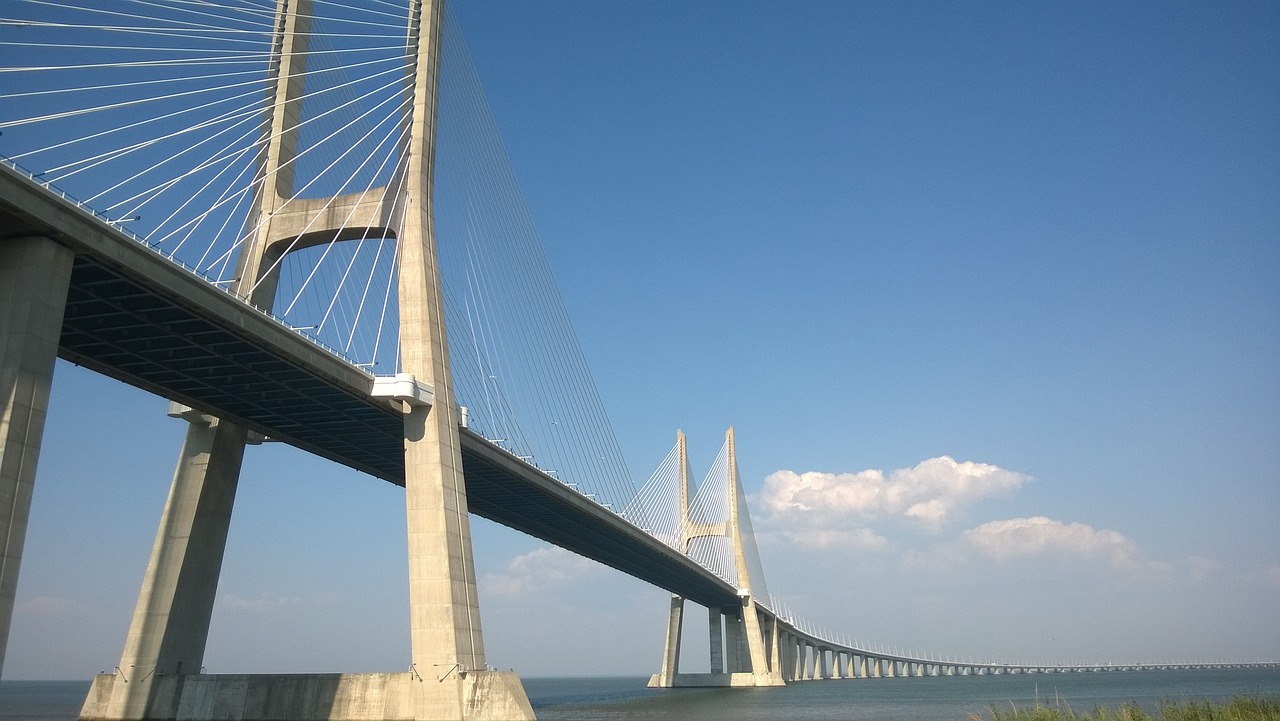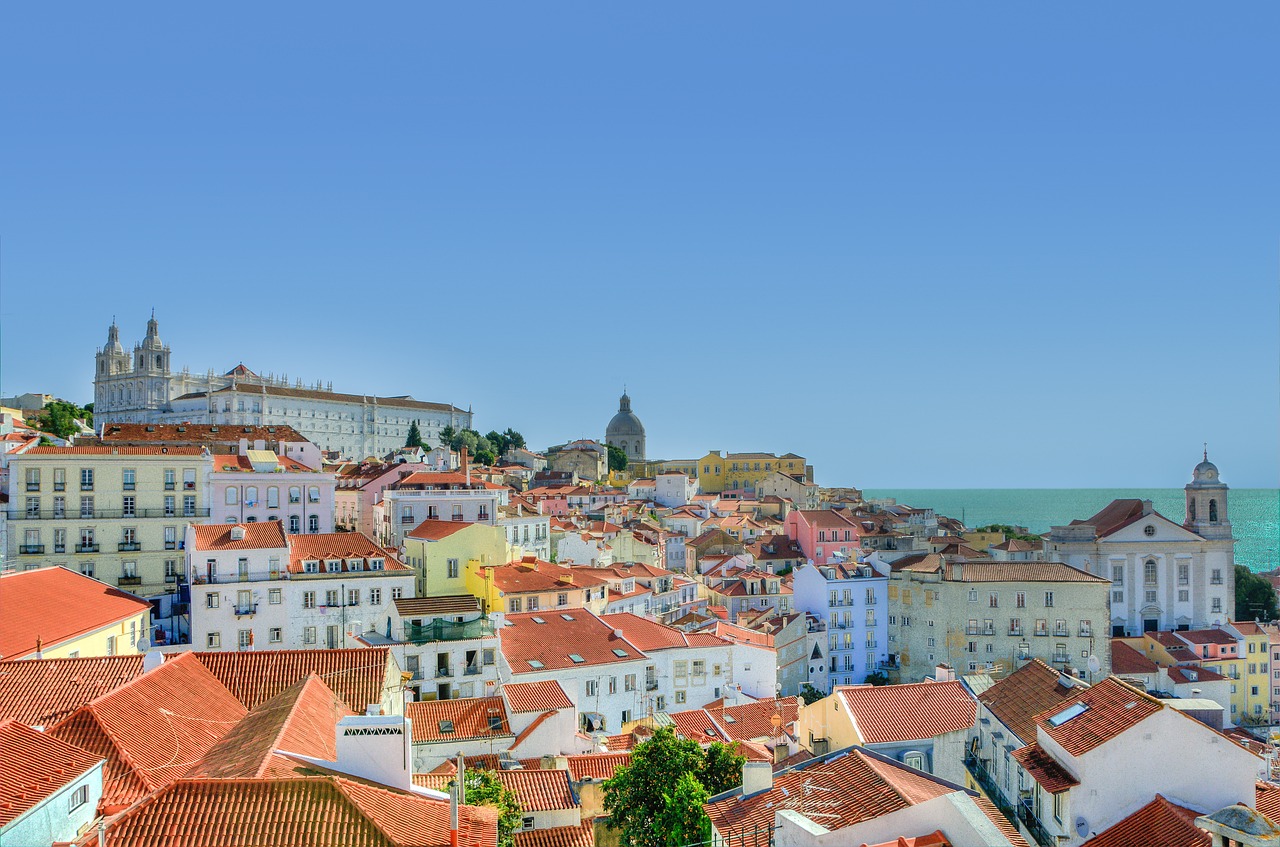Safety Tips for Remote Workers in Portugal
Portugal is a beautiful country in Southern Europe known for its rich history, stunning beaches, and vibrant culture. With the rise of remote work, many individuals are choosing Portugal as their base for working remotely. While remote work offers flexibility and freedom, it’s important to prioritize safety as well. In this article, we will discuss essential safety tips for remote workers in Portugal to ensure a secure and enjoyable experience.
Section 1: Research Your Accommodation
One of the first steps to ensure safety as a remote worker in Portugal is to thoroughly research your accommodation options. Look for accommodations that are located in safe neighborhoods and have positive reviews from previous guests. Consider factors such as security measures, proximity to amenities, and access to transportation. Some popular websites to find reliable accommodation in Portugal include Airbnb, Booking.com, and HomeAway.
- Choose a safe neighborhood: Prioritize safety by selecting accommodation in neighborhoods known for their low crime rates. Research the crime statistics of different areas before making a decision.
- Read reviews: Take the time to read reviews from previous guests to get a sense of the safety measures in place and any potential concerns.
- Consider security features: Look for accommodations with features such as secure entrances, surveillance cameras, or on-site security personnel.
- Proximity to amenities: Ensure that your accommodation is located near essential amenities like grocery stores, pharmacies, and medical facilities.
- Access to transportation: Consider the availability of public transportation options or proximity to major transportation hubs for easy commuting.
Section 2: Secure Your Digital Workspace
As a remote worker, your digital workspace is crucial for your productivity and security. Taking steps to secure your digital devices and workspace is essential to protect your sensitive information and maintain a safe working environment.
- Use strong passwords: Create unique and complex passwords for all your accounts and use a password manager to keep track of them securely.
- Enable two-factor authentication (2FA): Add an extra layer of security to your accounts by enabling 2FA, which requires a second form of verification in addition to your password.
- Keep software up to date: Regularly update your operating system, antivirus software, and applications to ensure you have the latest security patches.
- Use a virtual private network (VPN): Use a VPN when connecting to public Wi-Fi networks to encrypt your internet connection and protect your data from potential hackers.
- Backup your data: Regularly backup your important files and documents to an external hard drive or a cloud storage service to prevent data loss in case of device theft or damage.
Section 3: Stay Aware of Your Surroundings
Maintaining situational awareness is crucial for your personal safety as a remote worker in Portugal. Being aware of your surroundings can help you identify potential risks, avoid dangerous situations, and make informed decisions.
Portugal Image 1:

- Know the local emergency numbers: Familiarize yourself with the local emergency numbers in Portugal, including the police, ambulance, and fire services.
- Be cautious in crowded areas: Exercise caution in crowded tourist areas, as they can be prime targets for pickpockets and other petty crimes.
- Avoid displaying valuable items: Keep your expensive electronics, jewelry, and other valuable items out of sight to minimize the risk of theft or attracting unwanted attention.
- Trust your instincts: If a situation feels unsafe or uncomfortable, trust your instincts and remove yourself from the situation.
- Stay updated on local news and events: Stay informed about any local news, events, or safety advisories that may impact your safety.
Section 4: Use Reliable Transportation Services
When traveling within Portugal, it’s important to use reliable transportation services to ensure your safety. Whether you’re commuting to work or exploring the country, consider the following tips:
- Choose licensed taxis or rideshares: Opt for licensed taxis or reputable rideshare services like Uber or Bolt to ensure your safety during transportation.
- Check driver reviews: Before getting into a taxi or rideshare, check the driver’s reviews and ratings to ensure a safe and reliable experience.
- Share your trip details: Share your trip details with a friend or family member, including the driver’s details and estimated time of arrival.
- Be cautious with public transportation: While public transportation in Portugal is generally safe, be cautious of crowded buses or trains, and keep an eye on your belongings.
- Avoid hitchhiking: It is recommended to avoid hitchhiking in Portugal for your personal safety.
Section 5: Protect Your Personal Belongings
Protecting your personal belongings is essential to prevent theft and ensure a safe experience as a remote worker in Portugal. Follow these tips to safeguard your belongings:
- Use a secure bag or backpack: Invest in a bag or backpack with anti-theft features, such as slash-proof material or lockable compartments.
- Keep valuables locked: Use a hotel safe or secure lockers to store your valuable items, such as passports, cash, and electronics, when not in use.
- Be cautious in crowded areas: Be extra vigilant in crowded areas, markets, and public transportation, where pickpockets may operate.
- Avoid leaving belongings unattended: Never leave your belongings unattended, even for a short period.
- Consider travel insurance: Purchase travel insurance that covers theft or loss of personal belongings to provide financial protection.
Section 6: Health and Well-being
Taking care of your health and well-being is essential for a safe and productive remote work experience in Portugal. Consider the following tips:
Portugal Image 2:

- Register with a local doctor: Register with a local doctor or medical facility to ensure access to healthcare services if needed.
- Carry necessary medications: If you have any pre-existing medical conditions, ensure you have an adequate supply of necessary medications.
- Stay hydrated: Portugal can have hot summers, so it’s important to stay hydrated, especially if you’re working outdoors.
- Practice good hygiene: Maintain good hygiene practices, such as regular handwashing, to prevent the spread of illnesses.
- Be cautious with food and water: Follow food safety guidelines and drink bottled water to avoid foodborne illnesses.
Section 7: Emergency Preparedness
Being prepared for emergencies is essential no matter where you are. As a remote worker in Portugal, consider the following emergency preparedness tips:
- Know emergency exits: Familiarize yourself with the emergency exits in your accommodation and any other locations you frequently visit.
- Have emergency contact information: Keep a list of emergency contact numbers, including local authorities and your embassy or consulate.
- Learn basic first aid: Consider taking a basic first aid course to be prepared to handle minor injuries or medical emergencies.
- Keep important documents secure: Make copies of important documents like your passport and keep them in a secure location separate from the originals.
- Stay informed about local emergency procedures: Research and familiarize yourself with the local emergency procedures and protocols.
Section 8: Cultural Sensitivity
Respecting the local culture and customs is important for a positive and safe experience as a remote worker in Portugal. Consider the following cultural sensitivity tips:
- Dress appropriately: Dress modestly and respectfully, especially when visiting religious sites or conservative areas.
- Learn basic Portuguese phrases: Learning a few basic Portuguese phrases can help you navigate daily interactions and show respect to the locals.
- Observe local customs: Be mindful of local customs and traditions, such as greetings and table manners, to avoid unintentional offense.
- Respect personal space: Be aware of personal space boundaries and avoid intrusive behavior.
- Be mindful of noise: Be considerate of noise levels, especially during quiet hours or in residential areas.
Section 9: Secure Your Finances
Protecting your finances is crucial as a remote worker in Portugal. Follow these tips to secure your financial transactions and personal information:
Portugal Image 3:

- Use secure Wi-Fi networks: Avoid using public Wi-Fi networks for financial transactions and use secure, password-protected networks instead.
- Monitor your bank accounts: Regularly monitor your bank accounts and credit card statements for any suspicious activity.
- Use secure online payment methods: When making online purchases, use secure payment methods such as PayPal or credit cards with fraud protection.
- Be cautious with ATMs: Use ATMs located in well-lit and secure areas, and cover the keypad while entering your PIN.
- Keep copies of important financial documents: Make copies of your important financial documents and store them securely.
Section 10: Seek Local Advice
When in doubt, seek advice from locals or fellow remote workers who have experience in Portugal. They can provide valuable insights and recommendations for staying safe in the country.
- Join expat communities: Connect with expat communities or online forums to seek advice and guidance from individuals who have already navigated remote work in Portugal.
- Ask for recommendations: Reach out to locals or fellow remote workers for recommendations on safe areas, reliable services, and local safety tips.
- Follow local news sources: Stay updated with local news sources to be aware of any potential safety concerns or events in the area.
- Attend safety workshops or seminars: Look for safety workshops or seminars that can provide valuable information and practical tips for staying safe in Portugal.
- Consult with your employer: If you are working remotely for a company, consult with your employer for any additional safety guidelines or resources available to remote workers in Portugal.
Section 11: Emergency Contacts
Make a note of the following emergency contacts in Portugal:
- Emergency services: Dial 112 for emergencies and ask for the relevant service (police, ambulance, or fire).
- Embassy or consulate: Contact your country’s embassy or consulate in Portugal for assistance in case of emergencies or other issues.
- Local police: Research the local police station’s contact information in the area where you are staying.
Section 12: Conclusion
Working remotely in Portugal offers a unique opportunity to experience the country’s beauty and culture while maintaining a flexible work schedule. By following these safety tips, you can ensure a secure and enjoyable experience as a remote worker in Portugal. Remember to prioritize your personal safety, secure your digital workspace, and stay aware of your surroundings. With proper preparation and precautions, you can make the most of your remote work experience in Portugal while staying safe and secure.
References
– Airbnb: www.airbnb.com
– Booking.com: www.booking.com
– HomeAway: www.homeaway.com
– Uber: www.uber.com
– Bolt: www.bolt.eu

